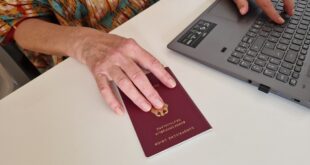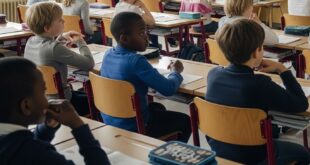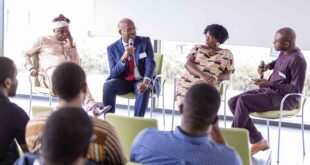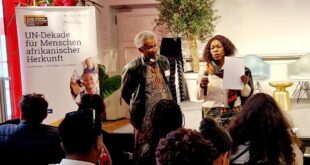The Hamburg communal politician and jurist Irene Appiah addressed a video conference on Saturday on the obligations of parents and the state when it comes to parenting in Germany.
The digital event was organised by The African Network of Germany (TANG), part of its series of virtual information sessions on issues ranging from refugee rights to children upbringing in the country.
Ms Appiah, who works at the education department of the Hanseatic city with the official title of “wissenschaftliche Mitarbeiterin der Behörde für Schule & Berufsbildung”, talked about the relevant laws governing the upbringing of children in Germany.
For example, Paragraph 6 of the German constitution, stipulates that:
“(1) Marriage and the family shall enjoy the special protection of the state.
(2) The care and upbringing of children is the natural right of parents and a duty primarily incumbent upon them. The state shall watch over them in the performance of this duty.”
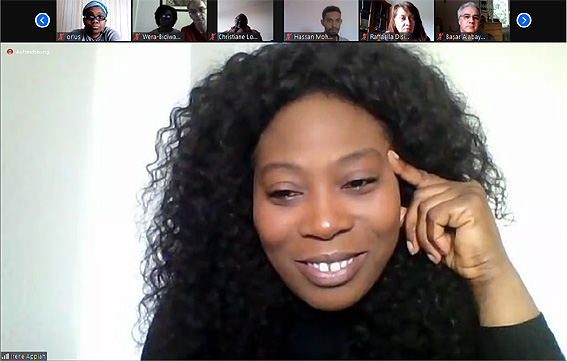
While the constitution clearly grants parents the rights to the care and upbringing of children, there are also laws in the country that impose duties on parents on how they should exercise their rights. The duties are clearly linked to the rights of children to grow up in utmost care and without being subjected to any forms of violence.
Children in Germany have had the right to a non-violent upbringing since November 2000 when the Bundestag passed the new version of the relevant paragraph (§1631 II BGB) in family law. Literally it says:
“Children have the right to a non-violent upbringing. Physical punishment, psychological injuries and other degrading measures are prohibited.”
The law therefore explicitly prohibits the use of violence in the upbringing of a child, Appiah, who is also an SPD member of the city council of Hamburg Mitte, explained. Children can also not be humiliated, threatened, intimidated and degraded with words, she added.
However, there are parents who come from other cultures where spanking a child is acceptable and, in fact, deemed necessary for their proper upbringing, Appiah, who is herself of Ghanaian origin, said.
This cultural difference is a challenge for migrant families in Germany as the law provides for various sanctions for violations of laws protecting children. These range from family law measures to criminal prosecution and, depending on the severity of the case, several years in prison.
In most cases the state tries to get violent parents on the right path by offering help and counselling, Appiah said.
However, in extreme cases children could be taken away from their parents and entrusted in the care of foster parents or homes.
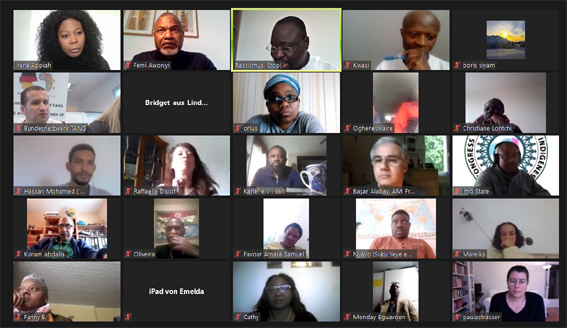
Appiah said the beating of children is an issue in the African community like in other migrant groups. Parents sometimes see the intervention of the state in the upbringing of their children as an incursion into their cultural rights and private life, she added.
Appiah called on parents to understand the law to avoiding falling foul of it and they should also seek help in managing difficult situations concerning the upbringing of their children.
The Ghanaian-born politician also addressed other challenges African parents face, such as the lack of traditional community support in the upbringing of children that exists in their home countries. In Africa, for example, it’s generally accepted that it takes a community to bring a child up.
Moreover, Appiah talked about how the obligations of parents to their relations in Africa affect their duties to their children here in the diaspora. Money direly needed for the welfare of children are sometimes spent to support people at home.
The fact that, in most cases, children speak better German than their parents leads to a reversal of role, whereby parents depend on their children to explain some things pertaining to German society to them, Appiah said. This situation is difficult for some parents to cope with.
The nearly two-hour interactive virtual session also discussed issues such as educational opportunities for young people with a history of migration, intercultural misunderstandings and prejudices affecting the choice of migrant youth on what career to pursue.
The event tagged “Schulung QualiPaß Flüchtlingsarbeit 2020” was attended by about 80 participants – member organisations of TANG, a network of more than 700 African organisations and individual members in Germany, and other community multipliers.
The conclusion is that parents should be aware of the laws and possibilities of state support in the upbringing of their children.
Femi Awoniyi
 THE AFRICAN COURIER. Reporting Africa and its Diaspora! The African Courier is an international magazine published in Germany to report on Africa and the Diaspora African experience. The first issue of the bimonthly magazine appeared on the newsstands on 15 February 1998. The African Courier is a communication forum for European-African political, economic and cultural exchanges, and a voice for Africa in Europe.
THE AFRICAN COURIER. Reporting Africa and its Diaspora! The African Courier is an international magazine published in Germany to report on Africa and the Diaspora African experience. The first issue of the bimonthly magazine appeared on the newsstands on 15 February 1998. The African Courier is a communication forum for European-African political, economic and cultural exchanges, and a voice for Africa in Europe.













